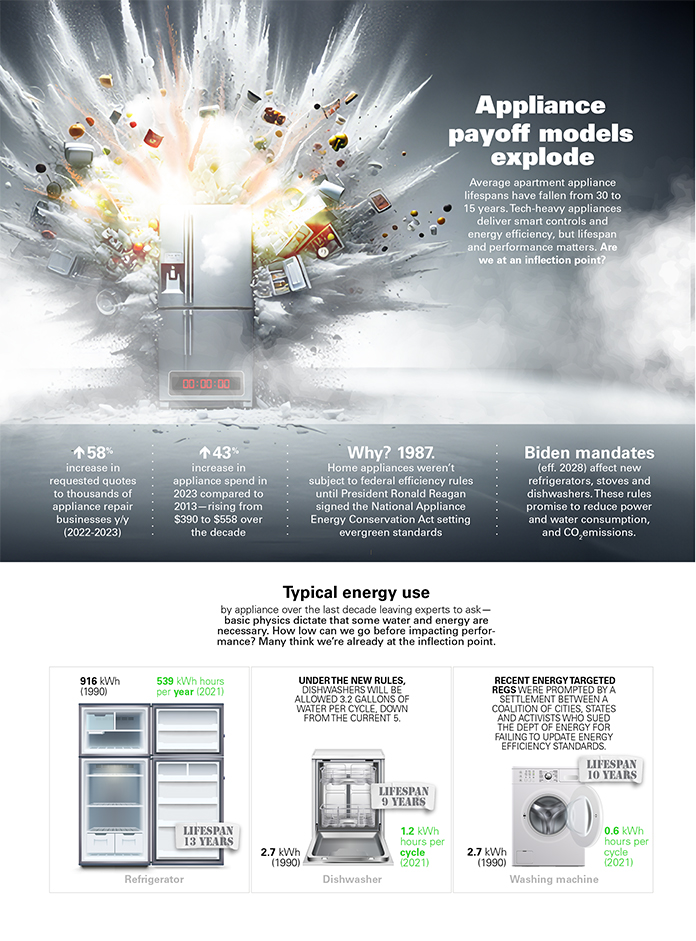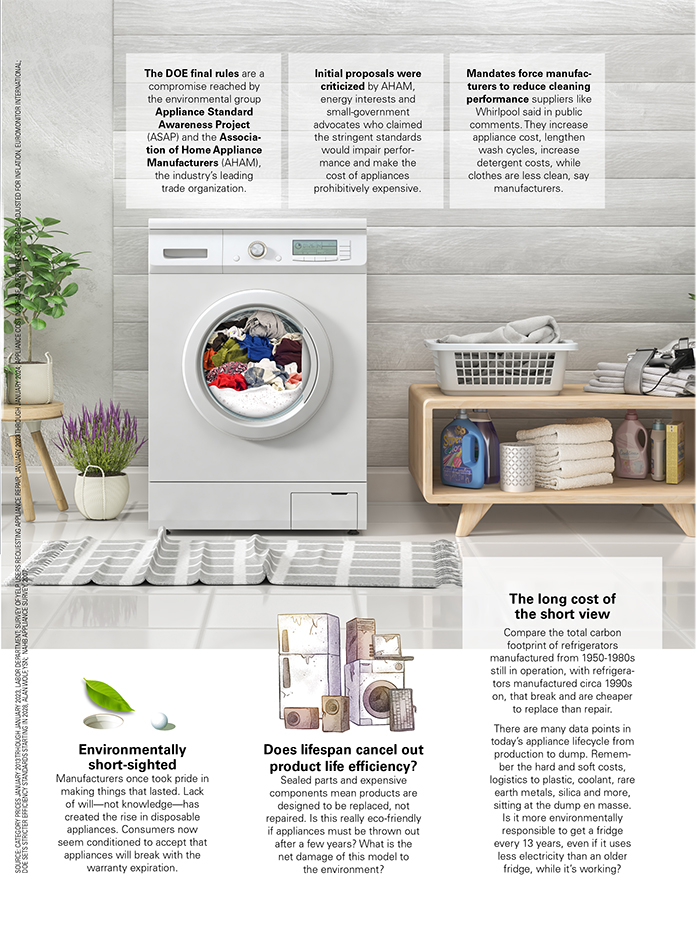^58 percent increase in requested quotes to thousands of appliance repair businesses y/y (2022-2023)
^43 percent increase in appliance spend in 2023 compared to 2013—rising from $390 to $558 over the decade
Why? 1987. Home appliances weren’t subject to federal efficiency rules until President Ronald Reagan signed the National Appliance Energy Conservation Act setting evergreen standards
Biden mandates (eff. 2028) affect new refrigerators, stoves and dishwashers. These rules promise to reduce power and water consumption, and CO2emissions.
Typical energy use by appliance over the last decade leaving experts to ask— basic physics dictate that some water and energy are necessary. How low can we go before impacting performance? Many think we’re already at the inflection point.
Refrigerator (lifespan 13 years) 916 kWh (1990); 539 kWh hours per year (2021)
Dishwasher (lifespan 9 years) 2.7 kWh (1990); 1.2 kWh hours per cycle (2021)–Under the new rules, dishwashers will be allowed 3.2 gallons of water per cycle, down from the current 5.
Washing machine (lifespan 10 years) 2.7 kWh (1990); 0.6 kWh hours per cycle
(2021)– Recent energy targeted regs were prompted by a settlement between a coalition of cities, states and activists who sued the Dept of Energy for failing to update energy efficiency standards.
The DOE final rules are a compromise reached by the environmental group Appliance Standard Awareness Project (ASAP) and the Association of Home Appliance Manufacturers (AHAM), the industry’s leading trade organization.
Initial proposals were criticized by AHAM, energy interests and small-government advocates who claimed the stringent standards would impair performance and make the cost of appliances prohibitively expensive.
Mandates force manufacturers to reduce cleaning performance suppliers like Whirlpool said in public comments. They increase appliance cost, lengthen wash cycles, increase detergent costs, while clothes are less clean, say manufacturers.
Environmentally short-sighted Manufacturers once took pride in making things that lasted. Lack of will—not knowledge—has created the rise in disposable appliances. Consumers now seem conditioned to accept that appliances will break with the warranty expiration.
Does lifespan cancel out product life efficiency? Sealed parts and expensive components mean products are designed to be replaced, not repaired. Is this really eco-friendly if appliances must be thrown out after a few years? What is the net damage of this model to the environment?
The long cost of the short view Compare the total carbon footprint of refrigerators manufactured from 1950-1980s still in operation, with refrigerators manufactured circa 1990s on, that break and are cheaper to replace than repair.
There are many data points in today’s appliance lifecycle from production to dump. Remember the hard and soft costs, logistics to plastic, coolant, rare earth metals, silica and more, sitting at the dump en masse. Is it more environmentally responsible to get a fridge every 13 years, even if it uses less electricity than an older fridge, while it’s working?
Source: Category prices January 2013 though January 2023, Labor Department; survey of Yelp users requesting appliance repair, January 2023 through January 2024; appliance cost increase over the last decade, adjusted for inflation, Euromonitor International; DOE sets stricter efficiency standards starting in 2028, Alan Wolf, YSN; NAHB appliance survey, 2007















